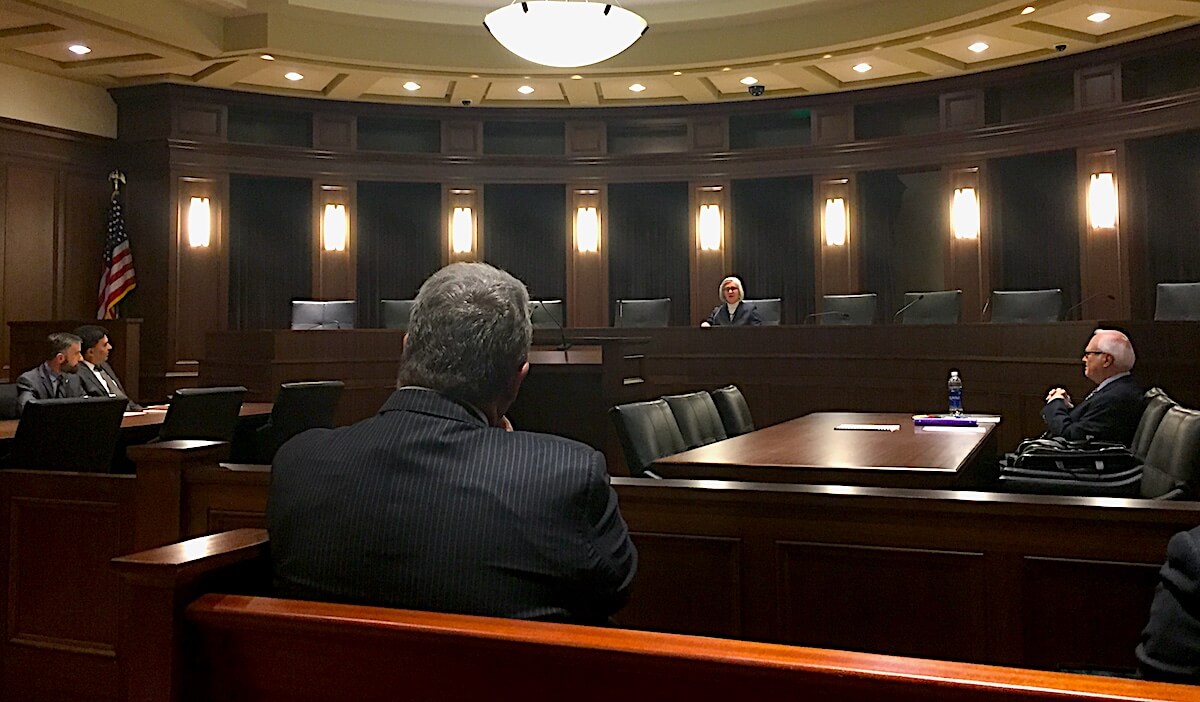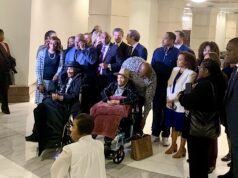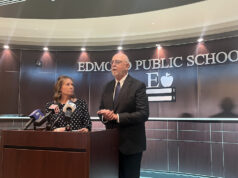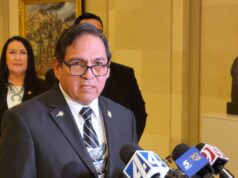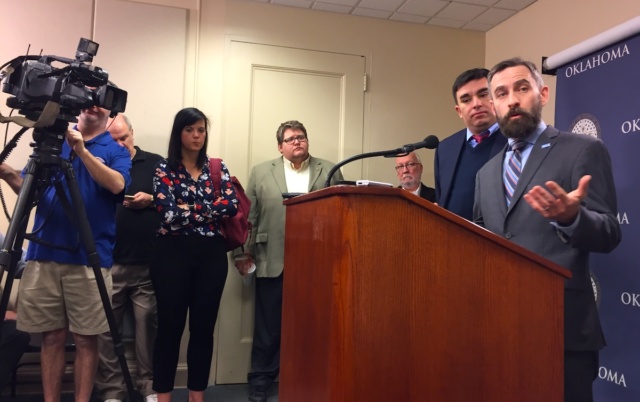
The Oklahoma Supreme Court dismissed a lawsuit challenging Justice Patrick Wyrick’s eligibility today, but a separate opinion from Justice Joseph Watt called it “the most critical issue this court has ever faced.”
Watt agreed with the majority opinion, however, saying that petitioners are not eligible for quo warranto relief since neither has a direct claim to the office.
“Our clients brought this case because they did not see the public officials coming forward,” said ACLU of Oklahoma executive director Ryan Kiesel at a press conference. “We respect the court’s opinion. There are going to be times when we agree with the court and times when we disagree with the court.”
In the majority opinion issued Tuesday, Chief Justice Douglas Combs, Vice Chief Justice Noma Gurich, Justice Yvonne Kauger, Justice Jim Winchester, Justice Tom Colbert and Justice John Reif wrote:
The law is unequivocally clear that a proper plaintiff in a quo warranto proceeding is the Attorney General, the District Attorney, or a contest for the office at issue.
Kiesel said his organization had reached out to their plaintiffs — Susan Spencer and Cheri Chandler — as residents of southeastern Oklahoma who might be willing to bring the challenge. He said Spencer is a former ACLU of Oklahoma board member.
He also said the ACLU has not reached out to the other candidates put forth for the position by the Judicial Nominating Commission — judges Mark Campbell and Jonathan Sullivan — and that it would likely be politically difficult for sitting judges to bring such a suit.
“It’s really their prerogative at this point to come forward. They’ve had ample opportunity to avail themselves of this challenge,” Kiesel said. “There’s obviously a great risk there; a great concern for potential retaliation or that sort of thing. There are some inherent disincentives.”
Kiesel’s legal director, Brady Henderson, said there is still time for those judges — or the attorney general and district attorneys — to choose to act, although the court listed Friday as the deadline for petition of rehearing.
“I don’t think it’s accurate to say they did not. They have not yet,” Henderson said.
Timeliness, however, could be an issue as well. The majority opinion issued Tuesday also cited the “untimely nature” of the ACLU’s lawsuit in reference to the JNC’s constitutionally prescribed practices.
A call for ‘transparency’
Other potential petitioners for the case could be other applicants for the supreme court seat, though none have come forward to this point. According to the Journal Record, only four people applied: Wyrick, Campbell, Sullivan and Tishomingo attorney Jack Coppedge II.
Henderson said the ACLU has filed an open-records request for the applications of any other citizen who applied with the JNC, but he said the commission has not agreed to make those records public.
He criticized the JNC’s decision not to comply with the request.
“The reality is, we don’t really know what happened here,” Henderson said. “We know, factually, Justice Wyrick should not qualify as a resident of district two. What we don’t know is how [the Judicial Nominating Commission] came to that conclusion. Or did they even consider the issue?
“Right now, they’re choosing to withhold most of those records, even though they cannot cite an actual exception in the act that allows them to do so.”
Kiesel said he wanted to emphasize that his organization is not attacking the JNC, but he questioned the body’s decisions.
“It’s important to note that JNC could resolve a lot of this by allowing some transparency into this process. What they do is incredibly important to the state,” Kiesel said.
Majority opinion
 Loading...
Loading...
Watt opinion
 Loading...
Loading...
RELATED
ACLU at Patrick Wyrick hearing: ‘There is a wrong here’ by William W. Savage III
(Editor’s note: This post was updated at 2:45 p.m., Tuesday, March 7, to include reference to a Journal Record story listing the fourth applicant for the court vacancy.)










